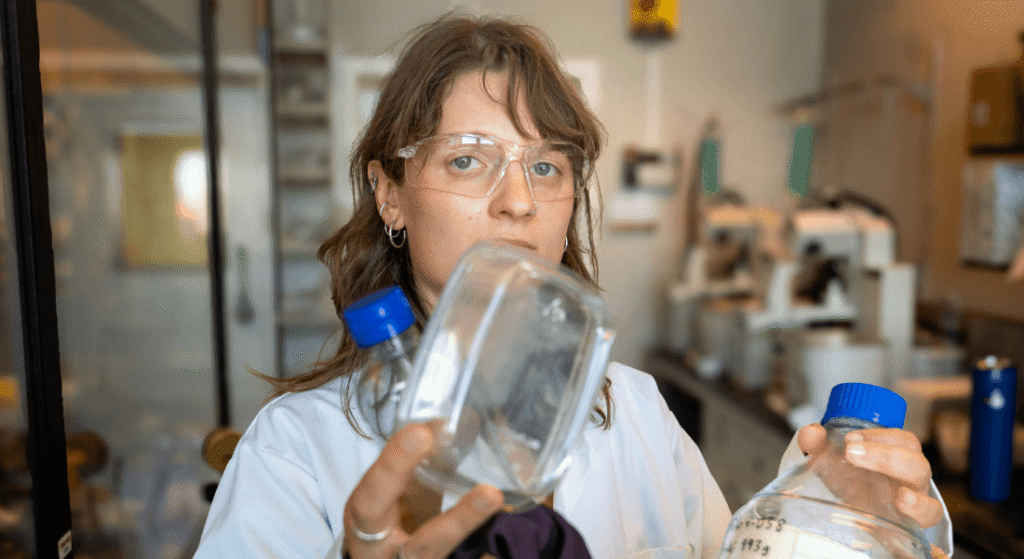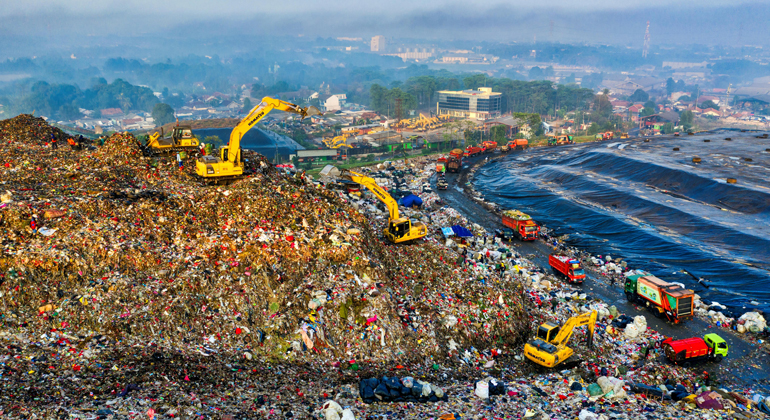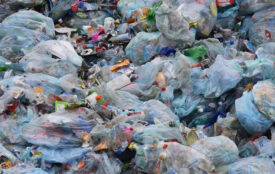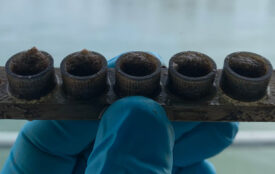Scientists transform plastic waste into efficient CO2 capture materials
From waste to valuable resource: Chemists at the University of Copenhagen have developed a method to convert plastic waste into a climate solution for efficient and sustainable CO2 capture. This is killing two birds with one stone as they address two of the world’s biggest challenges: plastic pollution and the climate crisis.
As CO2 concentrations in the atmosphere keep rising regardless of years of political intentions to limit emissions, the world’s oceans are drowning in plastics, which threatens marine environments and ecosystems.
The key global problems are often interconnected, and typically, the solution to one problem creates another one while the clock keeps ticking. But what if we could solve several problems at the same time?
It’s almost too good to be true, but a new cutting-edge invention promises to do just that. Researchers at the University of Copenhagen have developed a method where one man’s trash really does become another man’s “treasure”, when decomposed PET plastic becomes the main ingredient in efficient and sustainable CO2 capture.
We know the material from plastic bottles, textiles, and many other uses: PET plastic is one of the most widely used types of plastic in the world, but when it has served its purpose, it becomes a pressing global environmental issue. This is because it ends up in landfills in many parts of the world, where it breaks down into polluting microplastics that spread to the air, soil and groundwater. A large portion also end up in the oceans.

“The beauty of this method is that we solve a problem without creating a new one. By turning waste into a raw material that can actively reduce greenhouse gases, we make an environmental issue part of the solution to the climate crisis,” says Margarita Poderyte from the Department of Chemistry at the University of Copenhagen, lead author of the research paper disclosing the invention.
The solution is a potential win-win on a global scale, where plastic waste not only does not end up in nature but also becomes an active player in climate mitigation.
With the new chemical technology, researchers can transform PET plastic waste that is overlooked by recyclers into a primary resource in a new form of CO2 sorbent they have developed. The process ‘upcycles’ it to a new material the researchers have named BAETA, which can absorb CO2 out of the atmosphere so efficiently that it easily compares with existing carbon capture technologies.
Sustainable, flexible and scalable
The BAETA material has a powdery structure that can be pelletized, and a chemically ‘upgraded’ surface, which enables it to very effectively bind and chemically capture CO2. Once saturated, CO2 can be released through a heating process allowing the CO2 to be concentrated, collected and stored or converted into a sustainable resource. In practice, the researchers expect the technology to be first installed on industrial plants with exhausts from chimneys passing through BAETA units to cleanse them of CO2.
The research paper is published in Science Advances journal, which describes the chemical process behind the invention. The process is gentle compared to existing technologies and, at the same time, well-suited for industrial scaling.
“The main ingredient is plastic waste that would otherwise have an unsustainable afterlife, and the synthesis we use, where the chemical transformation takes place, is gentler than other materials for CO2 capture because we can make the synthesis in ambient temperatures. It also has the advantage that the technology can be scaled up more easily,” Margarita Poderyte says.
- Read more
- ScienceAdvances „Repurposing polyethylene terephthalate plastic waste to capture carbon dioxide“








